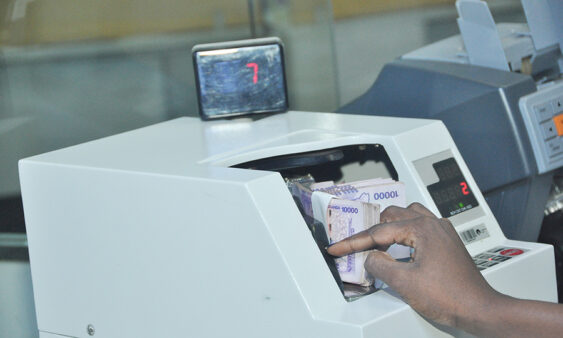Absa Bank Uganda in partnership with World Vision has commissioned a fully functional borehole and a changing room facility that will positively address menstrual hygiene challenges faced by 900 girls enrolled at Awach Primary School in Abim District.
The commissioning was also preceded by special training of girls, teachers, and parents in the production of reusable sanitary pads.
This is an intervention intended to promote the continued inclusion of girls in education across Karamoja sub-region, and a joint effort reflecting the commitment by both partners to support transformational and sustainable development for different communities in Uganda.
Speaking at the commissioning ceremony in Abim, Mr. Mumba Kalifungwa, the Absa Bank Managing Director, echoed the importance of strategic partnerships to drive community development.
Mr. Kalifungwa said, financial proceeds of up to UGX 90 million from the inaugural Absa KH3-7 Hills Run was channeled through World Vision to construct the facilities to improve menstrual hygiene management in underserved communities.
“We are proud to witness what they have done that we believe will make a difference in the lives of girls in this community. By improving menstrual hygiene management, we can keep the girl child in school by reducing school absenteeism and dropout rates among menstruating age girls,” Mr Kalifungwa.
Jeremiah Nyagah, the World Vision Nation Director noted that, the overarching goal for the initiative is to contribute to girls’ empowerment in the region and consequently reduce hindrances to their education due to menstrual health issues that aligns with broader national and global development goals.
A study conducted by the International Water and Sanitation Council indicates that a significant number of girls in Uganda experience disruptions to their schooling due to inadequate menstrual hygiene practices, with absenteeism having detrimental effects on academic performance.
Other studies by World Bank and UNICEF estimate that one in every ten menstruating girls skip school 4-5 days per month or completely drop out.
A girl who misses school for four days of every 28-day menstrual cycle loses an equivalent of two weeks of learning, and 104 hours of school every school term.
“A girl who misses 8 days a term may miss 24 days a year which translates into 11% of the time a girl pupil will miss learning due to menstrual periods. The responsibility therefore lies in our hands to stand together and address menstrual hygiene challenges within our communities,” adds Nyagah.

 I&M Select Banking Sapphire Club wins “Best Innovation of the Year” at UMEAS 2025
I&M Select Banking Sapphire Club wins “Best Innovation of the Year” at UMEAS 2025


